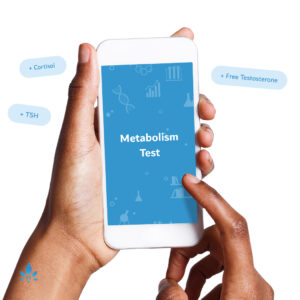The Correct Diet: Is There Such a Thing?


Diet is an often-used word and one that seems to carry a lot of stigma, pressure, and weight behind it, excuse the pun!
The definition of a diet is following a set way of eating of certain kinds of foods and drinks. The diet plan often has strict rules and protocols which must be obeyed at all times. If you are not sticking to the laws, then effectively you are not on the diet and are off track and failing.
We should instead use words such as nutrition, hydration, lifestyle management and long-term eating. This means adopting better individual eating habits that stick for most of the time whilst living our normal day to day lives.
So, what is the correct nutrition, hydration, lifestyle and eating plan?
The answer is – the one that works best for you at this present moment without causing constant stress and disruption in your life. The best nutrition, hydration, lifestyle and eating plan is the one you can stick to for at least 80% of the time.
This is called the 80/20 rule and means that you must be strict and on track for at least 80% of the time, with the remaining 20% available for going off course if you want to. Effectively, the not so healthy 20% will be covered by the healthier 80% and you will still be able to achieve your health and fitness goals.
If you were to do a quick search on amazon.com for “Diet Books” you would get over 60 000 results! With so many diet books to choose from, which one is the correct diet – if there is even such a thing.
There are countless ways of eating and using food and drink to help you achieve your goals. There is no one type of diet plan that works for every human being on the planet and just because it worked for the author, or your friend, that does not mean it will work for you.
So be mindful if you do buy and follow a certain diet book plan just because it is a best-seller or it has the most, or best, reviews, that it may not work for you. Maybe it has a catchy title with a great looking cover and your friend or colleague bought it and now recommends you to follow the diet because it worked for them.
Before you decide what plan or way of eating is right for you, just remember – we are as different and unique on the outside, as we are on the inside.
We therefore require nutrition and hydration in various constantly changing amounts (portion sizes), macronutrient ratios (protein, carbohydrates and fats), micronutrient densities (vitamins, minerals and essential fatty acids), as well as at certain times of the day (breakfast, lunch, dinner and snacks).
Human beings are metabolically different from one another. Metabolism is the speed and rate of chemical reactions in our bodies that break down food into available energy for us to use straight away, or to store for future use. Our overall metabolic rate is very individual and can depend on factors such as age, sex, genetic makeup, our environment, exercise type, intensity and frequency, as well as the climate we live in.
One thing for sure when it comes to eating and drinking is the higher the quality, the better it will be for you. This applies to all plant and animal produce, as well as water.
Poor quality means you do not get all of the micronutrients and macronutrients your body needs every single day to function and perform optimally and healthily. You can overload your liver and kidneys with the many toxic chemicals from pesticides, rodenticides, antibiotics and even microplastics found in the food chain.
Toxins stored in the body fat of purposely fattened up animals, for more profit to the farmer when sold, can play havoc on your body. Be cautious of eating the fatty parts of meat from poorly raised and inappropriately fed animals.
Consume as much high quality, natural and unprocessed foods and drinks. These include free-range, organic, pasture-raised, completely grass fed, biodynamic, wild caught, and artesian well (naturally filtered) water. The farming system should be local, holistic, sustainable and a closed diversified ecosystem, where it contributes to the environment instead of damaging it.
We are often dehydrated and thirsty before we are hungry, so keep drinking high-quality water throughout the day to suppress the urge to keep eating, when it is not necessary. The exact amount of water you should be drinking depends on factors such as climate, body weight, exercise type, intensity and frequency, as well as other foods and drinks you have already consumed.
As a general minimal amount, we should aim to drink 0.033 litres of water per kilogram of body weight. Therefore, a 100kg person needs to drink at least 3.3 litres of water per day.
About the author:
Stef Philippou is a Health and Fitness Professional living and working in Dubai. He coaches, trains, inspires, motivates and educates people to live balanced and fulfilling lives to achieve their personal goals and dreams.
Sustainable long-term results means working with Stef on nutrition and hydration, sleep and rest, movement and exercise, as well as stress management, all critical to living a happy holistic life!
He can be contacted through www.ptstef.com













































